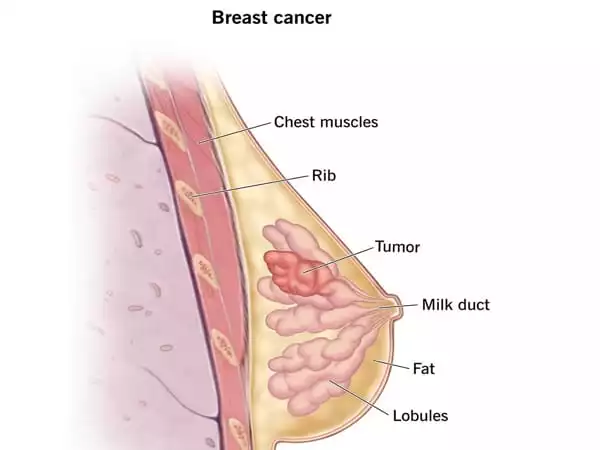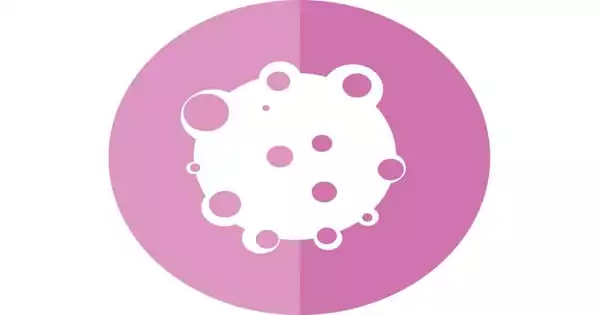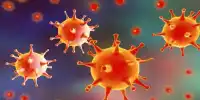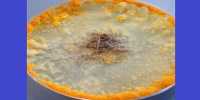Despite the fact that scientists are constantly improving cancer treatments, there is still tremendous space for improvement. A new study on salt in mice has been published. The researchers employed sodium chloride nanoparticles to successfully attack cancer cells. Researchers have discovered a technique for detecting salt levels in breast cancer tumors in mice using sodium magnetic resonance imaging (MRI). According to the researchers, imaging salt levels could be a valuable new tool for diagnosing and monitoring breast cancer.
According to new research, analyzing salt levels in breast cancer tumors can provide an accurate indication of how aggressive a cancer is and whether chemotherapy treatments are working. In a study, by the universities of York and Cambridge and funded by charities Cancer Research UK and Breast Cancer Now, researchers developed a technique using sodium magnetic resonance imaging (MRI) to detect salt levels in breast cancer tumours in mice.
The researchers used this technology to examine breast cancer tumors and discovered that salt (sodium) was being stored inside cancer cells and that more aggressive tumors accumulated more sodium.
The researchers next picked a set of 18 tumors and used chemotherapy to treat some of them. When they evaluated the tumors a week later, they discovered that sodium levels had decreased in the chemotherapy-treated tumors.
Our findings indicate that the elevated levels of sodium in breast cancer tumors originate within the cancer cells rather than in the surrounding tissue fluid, implying that something unusual about their metabolic activity causes them to accumulate more salt than healthy cells.
Dr. William Brackenbury
Breast cancer is the biggest cause of cancer-related death in women globally, with around 55,920 new cases diagnosed in the UK each year. According to the researchers, imaging salt levels could be a valuable new tool for diagnosing and monitoring breast cancer. The researchers are currently carrying out an observational study to see if their findings can be repeated in real breast cancer patients.
Dr. William Brackenbury of the University of York’s Department of Biology, the study’s senior author, stated, “We’ve known for a while that solid tumors are high in salt, but this research puts us a step closer to understanding why.” Our findings indicate that the elevated levels of sodium in breast cancer tumors originate within the cancer cells rather than in the surrounding tissue fluid, implying that something unusual about their metabolic activity causes them to accumulate more salt than healthy cells.
“There are currently only a handful of sodium MRI scanners across the country, but our study paves the way for them to be used as a new technique for diagnosing breast cancer, monitoring the success of treatments and improving survival rates for patients.”

According to the study’s authors, there is also the possibility of developing medications that block sodium channels in cancer cells, limiting tumor growth and spread. Previous study conducted by Dr. Brackenbury revealed a medication presently used to treat epilepsy that showed promise in targeting sodium channels and slowing cancer progression in laboratory models of breast cancer.
The researchers would also like to look into ways to improve the resolution of sodium MRI, which now produces a fragmented image when compared to a standard MRI scan. The team hopes to create new technologies, such as the construction of new radiofrequency coils and accompanying cooling systems, to improve the signal quality of sodium imaging.
This would enable them to do further research including investigating whether there are sodium hotspots in tumours where growth is most active. Clinical co-author on the study, Professor Fiona Gilbert from the University of Cambridge said,: “We are excited about using these techniques in the clinic.”
Cancer Research UK’s Research Information Manager, Dr Charles Evans, stated: “This intriguing study shows that employing sodium MRI could be a potent new technique to improve breast cancer detection. The approach has the potential to give us with more information on how breast malignancies respond to therapies. Furthermore, these strategies could be used to various types of cancer. However, the study is still in its early stages, and additional research will be required before sodium MRI can begin to aid people”.
Dr. Simon Vincent, Director of Research, Support, and Influence at Breast Cancer Now, stated: “Breast cancer must be detected early and precisely, and its response to therapy must be continuously tracked to ensure patients receive the best care possible. This revolutionary early-stage salt MRI research has the potential to improve patient care by providing medical teams with more detailed information. We look forward to scientists expanding on this discovery to learn how it may be used in the clinic to assist patients. The mechanism by which breast cancer accumulates salt should also be researched further, as it may lead to the discovery of new treatments for this dreadful illness.”
The study was also supported by the Engineering and Physical Sciences Research Council (EPSRC) and Biotechnology and Biological Sciences Research Council (BBSRC).
















